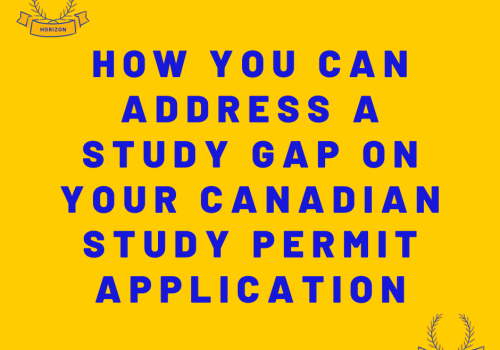It is often important to take a break from academic pursuits, whether for family reasons, health reasons, or to get professional experience. Many prospective students are anxious that taking extended study breaks may jeopardize their prospects of being accepted to a Canadian institution or acquiring a study visa in Canada. The good news is that even if you have a significant gap in your education, you can still go to Canada as an international student.
Even if you are still deemed to be “actively pursuing your education” after a long gap, you may face certain difficulties when applying to institutions or receiving a study visa. If you have a study gap, you should establish a timeline in chronological order that describes the decisions that led up to the break in your studies. This means keeping track of important events and dates that will assist schools and immigration authorities in understanding your situation. It is also critical that you collect any documentation that might support your study gaps, such as hospital records, airplane tickets, or paperwork outlining a family emergency.
Reasons For Study Gaps;
There are several reasons why a student may take a break from their studies. The following factors may explain why a student may have to take a study break as well as how they might be addressed:
Medical Issues;
A major injury or sickness may force you to discontinue your education. In this situation, you should provide proof of your medical issues in the form of a letter from your doctor.
Family Emergencies;
When a family emergency arises, you may need to drop everything to prioritize your family member’s requirements, which will obviously take time away from your other engagements. You should be truthful in this scenario and present facts and proof that explain the problem.
Work;
Work offers an individual some useful experiences that can help them succeed in a certain academic program. To help the visa or admission officer comprehend your career and academic trajectory, include proof of your employment experience in your study permit application.
Choosing a School;
Choosing the school you want to attend in Canada is a vital element of any decision to restart your education, especially after a long academic sabbatical. Some schools, such as St. Lawrence College, do not admit mature overseas students. When seeking to return to school in Canada after a long absence, it is critical to discover if the institution welcomes returning adult foreign students.
Choosing a Course Of Study;
When applying to Canadian universities, it is critical to carefully select your field of study. The curriculum you select should be compatible with your job experience or employment objectives. Schools will evaluate your application to determine if your selected subjects correspond with your past experience when you apply as a mature student. Similarly, when applying for a study permit, the visa officer will want to establish that the program of study fits into your professional trajectory.
Dual Intent;
The intention to shift to permanent resident status while seeking temporary study status in Canada is known as “dual intent.” While dual intent is allowed, a visa officer may deny an application if they believe you will not depart Canada by the end of your approved stay. As a result, your application should include discussing your links or ties to your home country and how your Canadian education will help you further your profession in your home country.

